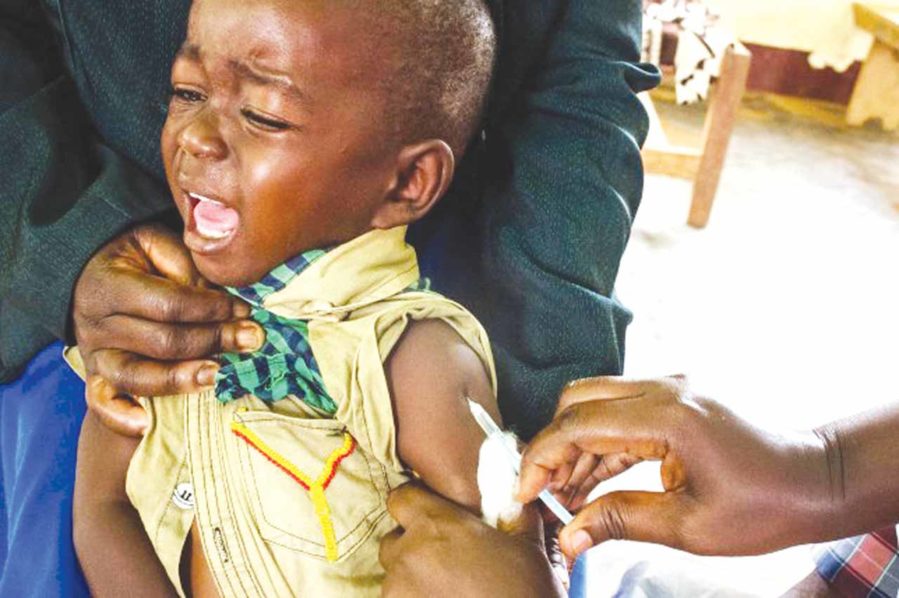
Gavi, the Vaccine Alliance, in partnership with the United Nations Children’s Fund (UNICEF), has confirmed improvement in immunisation enrolment in two Northeastern states of Gombe and Taraba from 50 per cent to 80 per cent.
This comes on the heels of the Memorandum of Understanding (MoU) on Primary Healthcare signed with the Nigerian government to strengthen healthcare service delivery in Nigeria.
UNICEF had swung into action immediately after signing the pact three years ago with massive campaigns on the benefits of immunisation, and the need for pregnant women to access medical facilities, and be delivered by skilled birth attendants even in difficult terrains with both states.
Speaking during a media dialogue on strengthening Primary Healthcare Systems on Gavi PHC MoU in Gombe, UNICEF Chief of Bauchi Field Office, Dr Nuzhat Rafique, explained that the agreement aims to achieve 85 per cent fully immunised children by the end of this year.
According to her, the percentage of fully immunised children in both states had gone up to 79 and 80 per cent from a moderate 50 per cent. Rafique said: “The overall health system is being strengthened, and we are trying to reach even the last child who has never been immunised.
“The purpose of strengthening this primary healthcare system is to reach those unreached families, children and mothers. That is why this is an important programme, and the media’s role is very critical.
“We appreciate the various achievements recorded during the three-year implementation of the MoU in the two states, which include an increase in the number of routine immunisation outreach sessions, leading to reaching more eligible children and a reduction in Zero Dose load – reduced to four per cent from 24 per cent in Taraba.
She said with funds from Gavi, UNICEF had provided Hilux trucks, motorcycles and vehicles for vaccine distribution and supervision. She assured that UNICEF would continue to provide the required support to the government at all levels, for the improvement of the health and living standard of the population, especially children and women in the communities.
Ibrahim continued: “During this crucial time of economic reforms, this intervention will provide great relief to our youth nationwide, demonstrating the administration’s commitment to improving the quality of life for young people.
“I would like to specifically acknowledge the presence of the National Youth Council of Nigeria (NYCN) and other youth and student groups here today, as they continue to play a critical role in ensuring that the voices of our youth are heard, and their needs are met.
“With these CNG tricycles and other ongoing initiatives, we are not only transforming transportation for our youth but also paving the way for a brighter future. Let us continue to work hand in hand to ensure that the youths of Nigeria are empowered to lead and succeed.”
The Minister of State in the ministry, Ayodele Olawande, explained that the initiative is one of the laudable programmes of the current administration aimed at empowering youth, generating employment, and improving the social-economic well-being of young people in the country.
He restated that the Federal Government was committed to reducing unemployment, particularly among the youth, women, and other vulnerable groups, assuring that the empowerment initiative was a continuous exercise.
Olawande, therefore, urged the beneficiaries to put the tools into profitable use in deference to the ministry’s mandate of fulfilling the Renewed Hope Agenda to make the country economically viable and productive.
Earlier, the President of the National Commercial Tricycle and Motorcycle Owners and Riders Association (NATOMORAS), Usman Buba Gwoza, lauded the government for fulfilling its promise of empowering members of the association through the allocation of the CNG-powered tricycles.
According to him NATOMORAS members, who are riders and owners of commercial vehicles are vital to the everyday movement of millions of Nigerians.He noted that the tricycles would not only uplift their livelihoods, but also support the government’s goals of job creation, poverty alleviation, and environmental sustainability.
“We have worked this far together, with trust, faith, and commitment. Now, we urge the government to honour its promise, recognising the pivotal role NATOMORAS plays in Nigeria’s community transport system,” Gwoza added.






